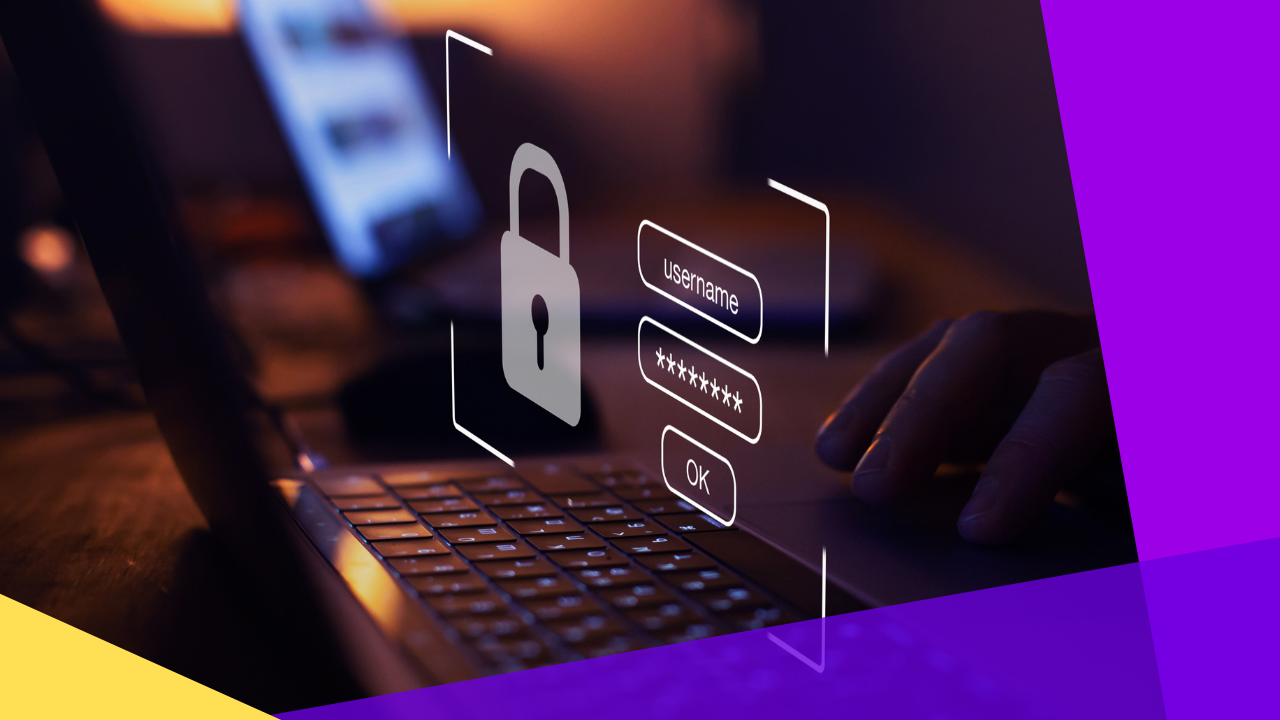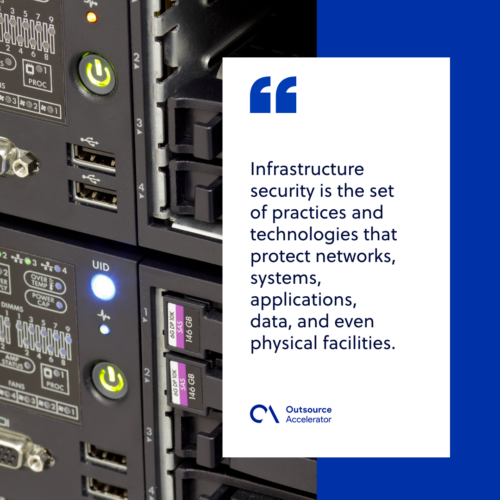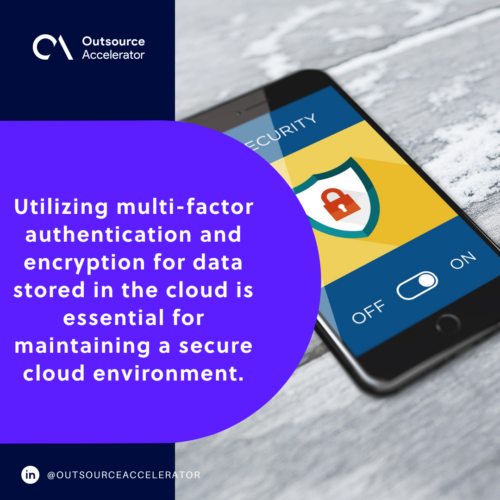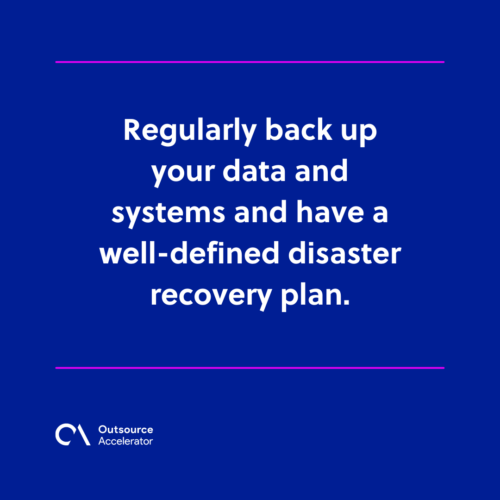Infrastructure security: How it keeps your business safe

Nowadays, cyber threats have become a significant concern, especially as businesses migrate online to capitalize on the benefits of digitalization.
Cyber attackers are constantly looking for ways to exploit vulnerabilities in the infrastructure and gain access to sensitive data.
Security Intelligence, through a Waterfall Security report, revealed that high-impact attacks on critical infrastructure have risen to 140% in 2022. The report estimates that with that growth rate, cyberattacks might shut down 15,000 operations by 2027.
So, how can businesses ensure that their assets are safe? Let’s dive into the importance of infrastructure security.
What is infrastructure security?
Infrastructure security is the set of practices and technologies that protect networks, systems, applications, data, and even physical facilities.
It covers a wide range of security measures, including:
- Authentication
- Encryption
- Access control
- Threat detection
By adopting comprehensive infrastructure security measures, businesses shield themselves against cyber threats and other potential vulnerabilities.
Offshoring security analysts from trusted firms like Outsourced is also a viable option.

4 levels of infrastructure security
Infrastructure security encompasses several levels, each with unique security requirements. These levels include:
1. Data
Data is the lifeblood of any business, and protecting it is paramount. Data infrastructure security safeguards information throughout its lifecycle — from creation through storage, processing, and disposal.
2. Application
Business applications run on servers; securing them is essential to safeguard apps. Application infrastructure security protects servers and software from unauthorized access and malicious attacks.
3. Network
A network is the communication backbone of any business. Network infrastructure security safeguards channels that connect companies, systems, employees, and customers.
4. Physical
Physical infrastructure security focuses on securing the physical assets of an organization. These could be servers, routers, and switches.
Moreover, it includes physical surroundings, like power, cooling, and environmental controls.
Network infrastructure security
As mentioned, network infrastructure security is crucial in protecting the communication channels that connect enterprises with employees and customers.
One of the most significant security risks is the interception of data within a network. To mitigate this, companies can implement encryption protocols to ensure that any intercepted data is unreadable.
Firewalls, intrusion detection systems, and virtual private networks (VPNs) ensure the confidentiality and integrity of data transmitted within the network.
Regular security audits and updates are essential to counter emerging threats.
Cloud infrastructure security
As organizations embrace cloud computing, cloud infrastructure security takes center stage.
Cloud providers like Amazon Web Services (AWS), Microsoft Azure, and Google Cloud offer various security tools and protocols. They ensure data confidentiality, access control, and protection against cyber threats.
Utilizing multi-factor authentication and encryption for data stored in the cloud is essential for maintaining a secure cloud environment.

Importance of infrastructure security
The importance of infrastructure security cannot be overstated. Here are the reasons why firms must prioritize it:
- Protects sensitive data. With cyberattacks becoming increasingly prevalent, robust infrastructure security prevents unauthorized access to sensitive information. This safeguards both customers and the organization.
- Maintains business continuity. A secure infrastructure ensures that systems and operations remain functional. This minimizes downtime in the face of potential attacks or failures.
- Preserves reputation. Security incidents and data breaches can tarnish an entity’s reputation. By prioritizing infrastructure security, companies demonstrate their commitment to protecting customer data and building trust.
Common infrastructure security threats
Infrastructure security threats come in different forms, and they are continually evolving. Some of the most common infrastructure security threats include:
- Malware attacks. Malicious software such as viruses, worms, and ransomware can compromise data, disrupt operations, and lead to financial losses.
- Phishing and social engineering. Cybercriminals use these tactics to manipulate individuals into divulging sensitive information, leading to unauthorized access.
- Denial-of-Service (DoS) attacks. This happens when attackers overwhelm a system with excessive traffic. This renders the product or service unavailable to users.
- Insider threats. Disgruntled employees or individuals with access to the organization’s systems may intentionally or accidentally compromise security.
- IoT botnets. Cybercriminals can exploit insecure IoT devices to create botnets, which can launch large-scale attacks on infrastructure systems.
- Physical dangers. Natural disasters, fires, and physical intrusions can cause damage to the physical infrastructure. This can result in data loss and operational disruptions.
Infrastructure security best practices
Businesses can adopt several strategies to improve their infrastructure security. Some of these best practices include:
- Layered security approach. A layered security approach involves implementing different security measures at different parts of the infrastructure.
- Regular security audits and assessments. Conduct frequent security reports to identify vulnerabilities and weaknesses in your infrastructure. This helps in doing timely fixes and updates to ensure robust protection.
- Establish access controls. Set up access controls and authentication mechanisms to limit sensitive data and systems access. This prevents unauthorized users from gaining entry and reduces the risk of data breaches.
- Encrypt data. Use encryption protocols to safeguard data both at rest and in transit. Even if data is intercepted, encryption ensures it remains unreadable and unusable to unauthorized parties.
- Multi-factor authentication (MFA). Install MFA for accessing critical systems and applications. It adds a layer of security by requiring multiple verification forms from users.
- Patch management. Keep all operating systems, applications, and software updated with the latest security patches. Regularly applying patches prevents known vulnerabilities from being exploited.
- Employee training and awareness. Educate employees about cybersecurity best practices and the importance of adhering to security protocols. A well-informed workforce can mitigate human errors that lead to security breaches.
- Backup and disaster recovery plans. Regularly back up your data and systems and have a well-defined disaster recovery plan. This ensures that you can quickly restore operations even in the event of a breach or system failure.

- Vendor and third-party risk management. If your infrastructure involves third-party vendors, ensure they follow stringent security measures. Regularly assess their security practices to prevent potential vulnerabilities through external connections.
- Incident response plan. Develop a clear incident response plan that outlines steps to take in case of a security breach. This plan should include communication protocols, containment strategies, and recovery procedures. You can outsource cybersecurity services to offshore companies like Outsourced to keep your business safe and protected.







 Independent
Independent




